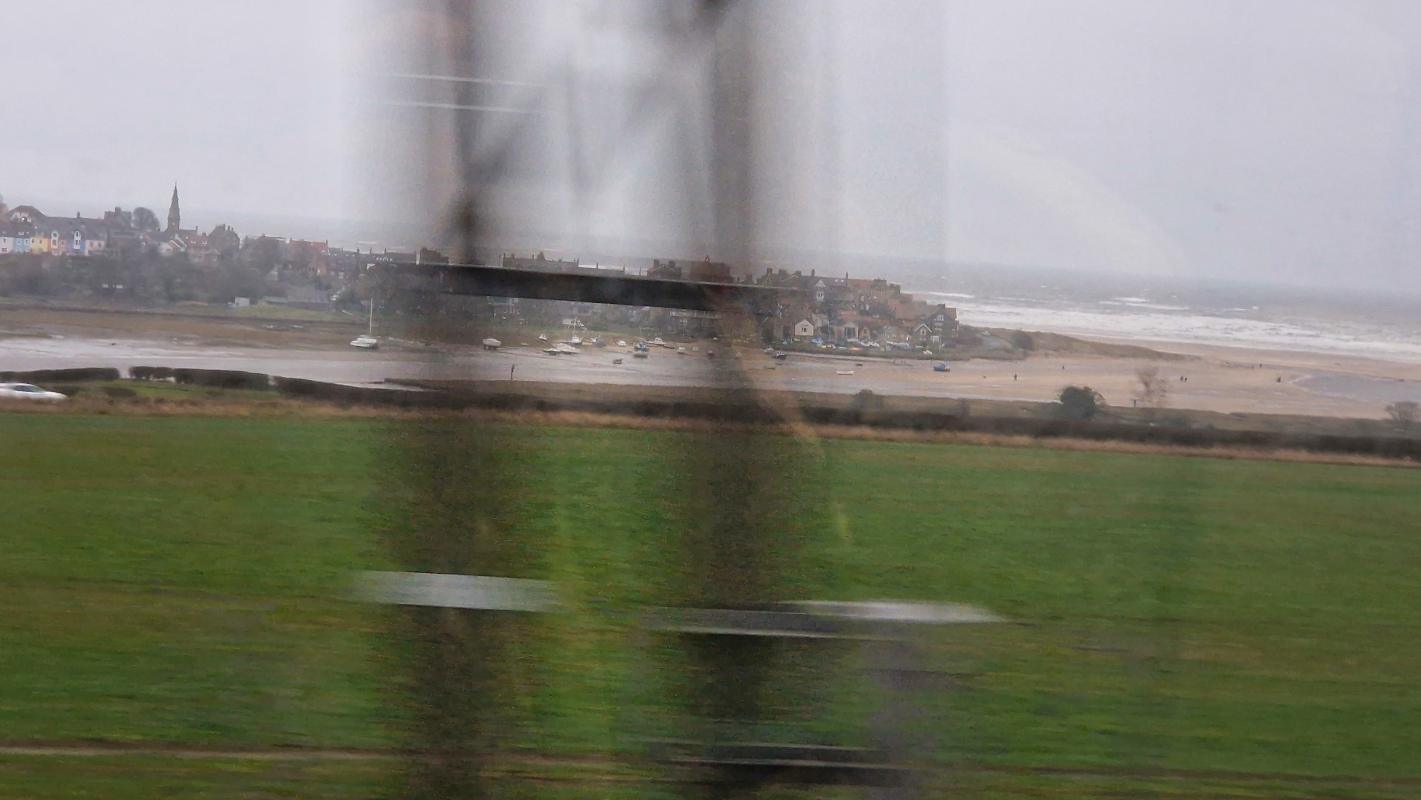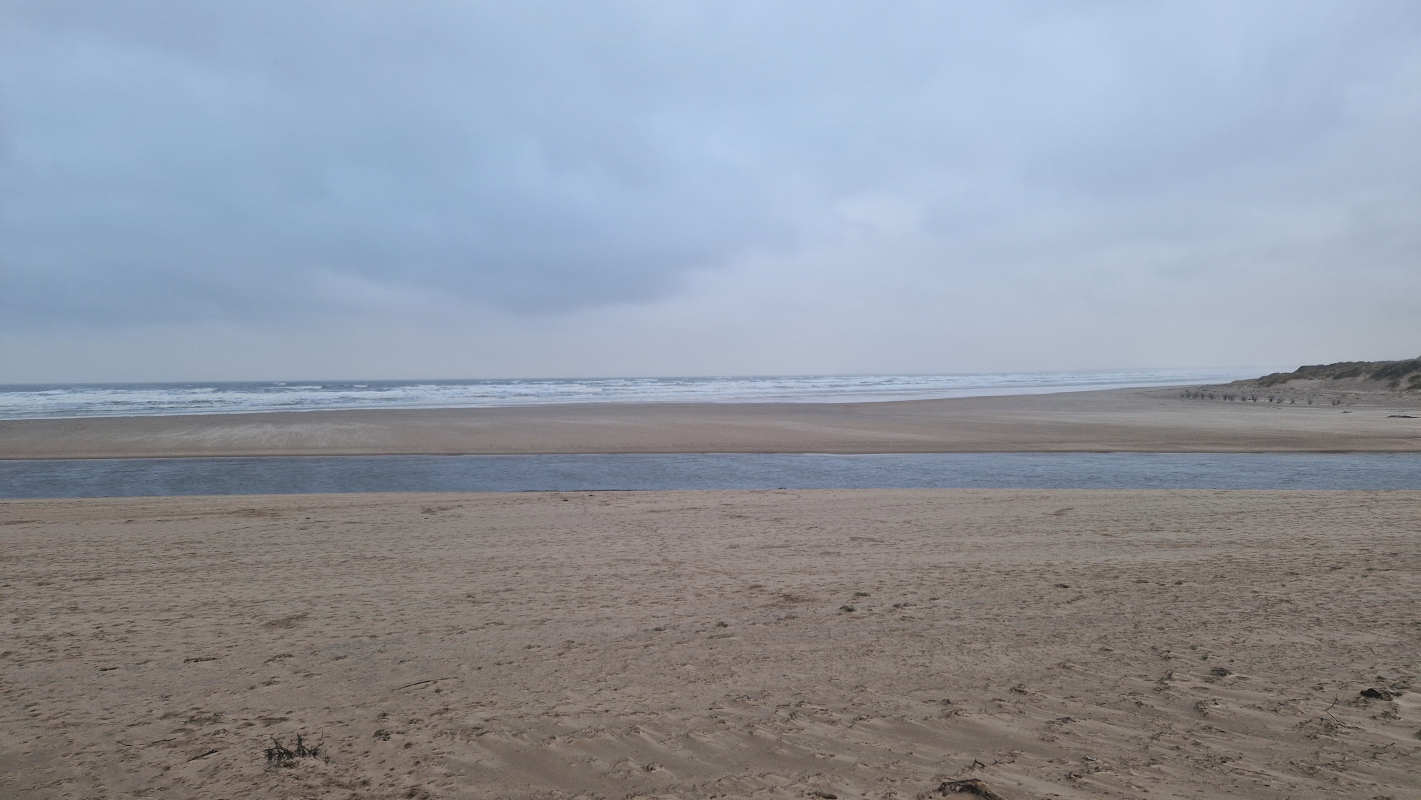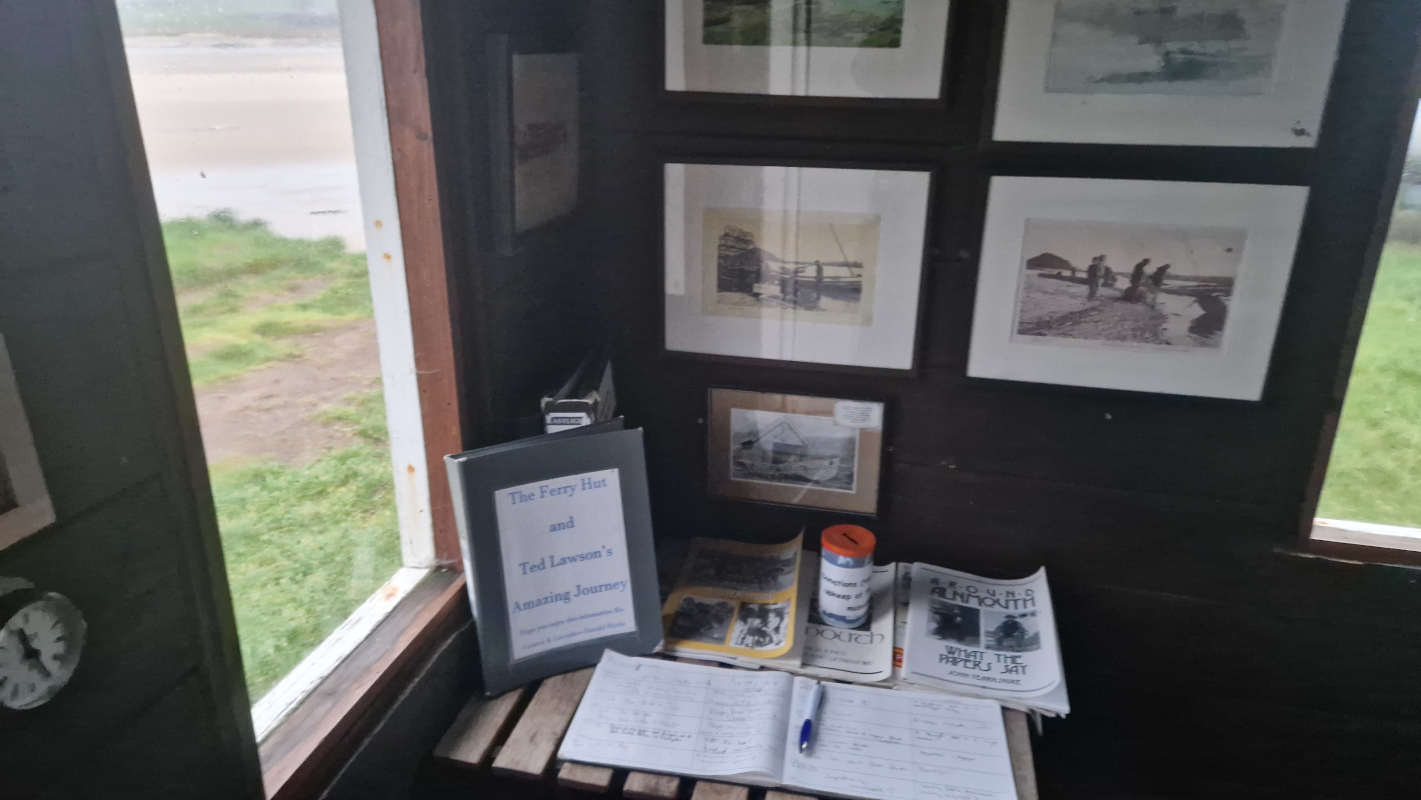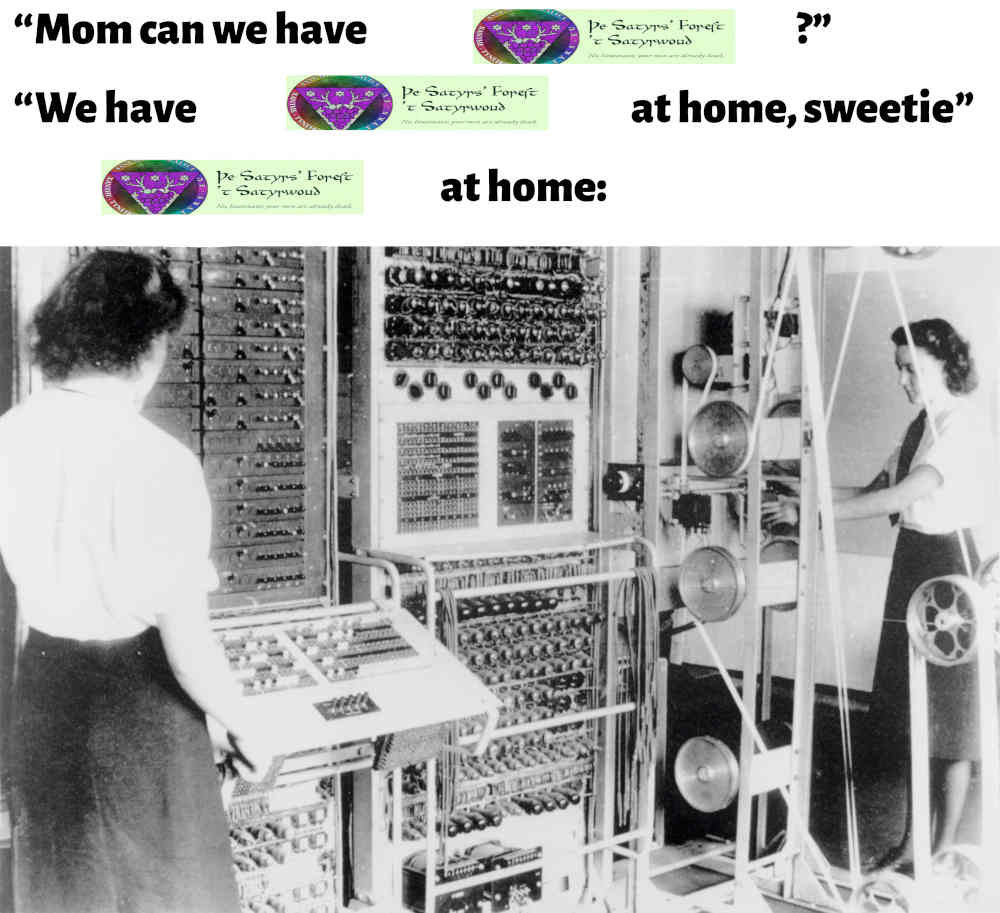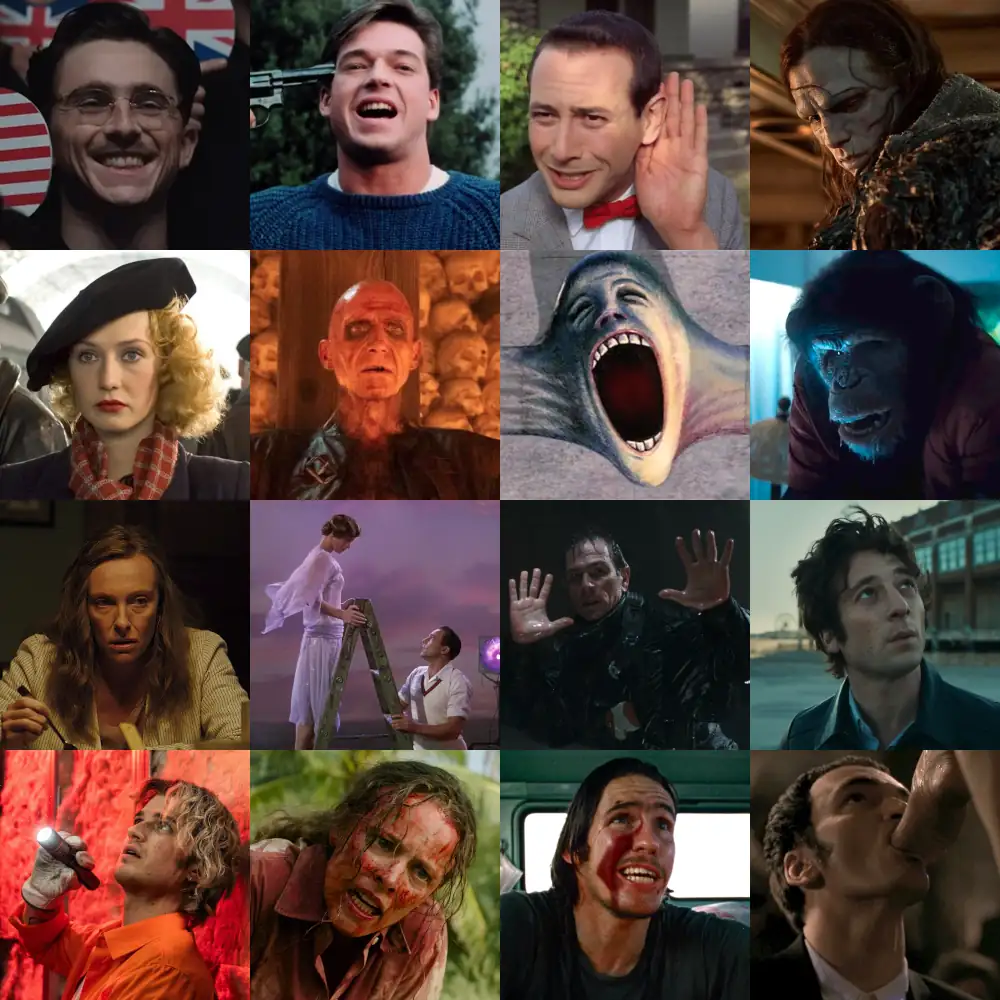
Marty Supreme (2025)
So many insane fucking things happen in this film, i almost forgot that the opening credits sequence is Timothée Chalamet’s sperm racing to inseminate Odessa A’Zion’s egg, which then turns into a ping-pong ball, which he hits. Everything about Marty Supreme further confirms that Mr Chalamet is our generation’s only true movie star. 9/10
Silent Night, Deadly Night: Part Two (1984)
Watched over Discord voice chat with a friend, which i suspect is the ideal way to do it. Eric Freeman, who plays our main character Ricky, makes some… how should i put it… inspired acting choices every time he opens his mouth — this is a man whose eyebrows have a mind of their own.
My only real complaint is that i just wish there was more killing. Over half of the film is taken up by a clip show of the previous entry in the series, and though Ricky’s rampage is iconic enough to make up for it (Say it with me: GARBAGE DAY!!!!), i can’t help feeling there’s a lot of missed potential. 7i/101
Pee-wee’s Big Adventure (1985)
This is what i thought being an adult would be like as a kid. We should all aspire to be a little more like Pee-wee in our daily lives. 8/10
Guillermo del Toro’s Frankenstein (2025)
Oh, for fuck’s sake. Look — there’s a lot to like about this. Jacob Elordi’s turn as Adam Frankenstein is fantastic. But it’s overstuffed with so, so much pointless melodrama and bombast — and coming from a director who claims to hate CGI, it sure did look like the bloody Polar Express every time there was a fight scene! 5/10
Zwartboek / Black Book (2006)
Paul Verhoeven is single-handedly holding up the entirety of Dutch cinema with just his pinky finger, and we must all thank him for it, otherwise there would be no respite from the endless Hilversumslop. 7/10
28 Years Later: The Bone Temple (2026)
“moon”
Easily the most brutal film in the series, and none of the worst kills are even done by zombies! Ralph Fiennes gives it his all, with a fantastic record collection to match. Jack O’Connell is one to watch, too — the look on his face when he starts thinking wait, shit, is this guy Satan? is pure cinema™. 8/10
Pink Floyd — The Wall (1982)
I’m still not sure if this is a searing societal critique or a sad, puerile tantrum. I don’t know if anyone’s sure. Still, i’ve got to give it a positive rating just for the insanity of the animation on display. 6/10
Primate (2025)
I was going to watch internationally acclaimed Korean thriller No Other Choice. Unfortunately, i was late to the screening, so i decided to watch a movie about an evil monkey instead.
And you know what? It’s a damn good movie about an evil monkey! It’s clearly not the best film ever, but it’s the best version of itself it could be. The decision to use a guy in a practical suit (with some CG touchups) for the titular chimp paid off massively. I just wish Noam Chomsky was here to see it.2 6½/10
Hereditary (2018)
Everyone who was a member of the Academy in 2018 should be slapped in the face until it bleeds for not nominating Toni Collette for Best Actress. My stomach was doing ollies and backflips all the way through — the family argument is more terrifying than anything supernatural could ever be. 10/10
Singin’ in the Rain (1952)
What i find interesting about this is that it’s, like… a 1920s-nostalgia picture? Which is a concept that’s almost incomprehensible today. Maybe that’s why the big show-stopping number has fuck-all to do with anything else — but it’s hard to care when it’s that bloody good! 8/10
The Fugitive (1993)
I tried writing a review of this, but when i looked back at the page, it was just “They don’t make ’em like they used to” over and over again? Strange. To paraphrase Vespasian: I think i’m becoming a Dad.
Reading up on the production afterwards, it’s incredible that this is as great as it is. It seems so meticulously planned out, and then it turns out they were just making it up as they went along. Harrison Ford fucked his knee during the train stunt and he just had to have a limp for the rest of the film because they were shooting chronologically. Incredible. 8/10
Springsteen: Deliver Me from Nowhere (2025)
Largely fails to rise above standard biopic mediocrity, but there are some surprisingly interesting choices being made — setting it at one particular moment in Bruce Springsteen’s career helps ward away the standard mile-a-minute “this is the entire life story of Blorbo Glump” biopic pacing, the incidental music is shockingly good given the type of film this is, and, of course, Stephen Graham is there. 5¼/10
Cold Storage (2026)
I liked this overall — good, campy fun — and would recommend you go see it, since it doesn’t seem to be getting much love at the box office. But…
It’s often said that streaming services like Netflix mandate that the dialogue in their shows be written for slowpokes who are watching while scrolling through TikToks on their phone, and this was the first time i got the sense that was going on. Joe Keery’s character is a talkative (if charismatic) little bastard, and he often speaks like he’s trying to put the audio describer out of a job, pointing out the blatantly obvious and repeating information we’ve heard a jillion times before. You just wish Liam Neeson would tell him to shut up. 6/10
Send Hepl (2026)
The best Sam Raimi Moments™ in Send Help, in no particular order:
- A boar attack being the most terrifying thing in the entire film
- Closing the plane window on your annoying coworker screaming for help
- The eye-gouging fight in the woods
- Dylan O’Brien having a paddy after Rachel McAdams leaves him alone
7½/10
The Texas Chain Saw Massacre (1974)
I think my copy just had uniquely crappy picture quality, but every frame of this looks like someone’s last known photo. There is no good in this movie’s world. There doesn’t seem to be much at all, really. Just unrelenting chaos and torture. So, you know, god forgive a family love each other and have a shared hobby 🙄️ 8/10
From Dusk till Dawn (1996)
Quentin Tarantino drinks beer off a vampire woman’s foot. So that’s going to be etched into my mind forever. Thanks. 7/10

